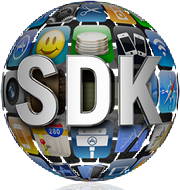Tech
The iPhone development 'emergency guide'
Blogger and Mac developer Matt Gemmell recently offered an "emergency guide" to professional programmers new to the Mac and iPhone. Its a bare-bones, short-form explanation of what's what for those getting started developing for the Apple platform.


•It is NOT cycle-accurate. Not even remotely. Your animations will be much faster in the Simulator than on the device, so don’t ever judge performance from the Simulator. •It doesn’t have all the apps/facilities of an actual iPhone. For example, it doesn’t simulate things like the accelerometer. •Don’t try to submit apps to the App Store that you haven’t tested on actual devices.He also had some practical steps for getting the software into the App Store. Some developers may not be aware of the length of time the process can take, he appeared to suggest:
•Apple has to approve your app before it goes onto the App Store. This can take any amount of time; right now it’s somewhere around 1-2 weeks. You can’t speed this process up; you just need to wait. This is an inherently and unavoidably flexible part of your deadline, so don’t over-promise. •This approval process happens even when you submit an update to an existing app, every time. •Your app will be run by an actual human.